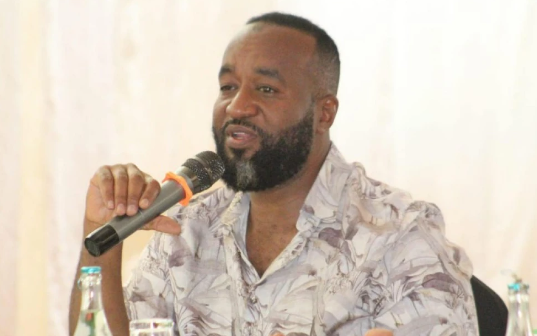Kenya is facing significant financial losses from illegal mining activities, particularly by foreign miners who extract minerals and export them as sand, according to Mining Cabinet Secretary Hassan Joho. Speaking on Tuesday in Mombasa, Joho highlighted that an alarming 95% of mining operations in Kenya are illegal, emphasizing that the ores extracted often contain multiple minerals.
“These miners export these ores in the form of sand and only analyze it in foreign lands, paying royalties for a single mineral, while in fact, they take out many more minerals,” he stated during a meeting with the National Assembly Departmental Committee on Environment, Forestry, and Mining, chaired by Nakuru Town East MP David Gikaria.
Joho stressed the need for better enforcement programs, which would require an increase in police presence and funding for mining oversight. He also called for the establishment of modern laboratories to ensure that all exported minerals are thoroughly analyzed to determine their true value before leaving the country. “We need new modern labs because when minerals are extracted from the earth, most of the time, it is a mixture of various minerals,” he explained.
For example, titanium mined along the coastal belt often contains various other minerals. Joho noted that when copper ore is extracted, it may also contain gold, zinc, or silver. However, miners only pay royalties on copper, leading to substantial revenue loss for the country. “As a country, we lose because the copper ore miners only pay for copper and not for the other minerals like gold, zinc, or silver,” he added.
To address these issues, Joho plans to initiate regulatory changes to ensure that Kenya receives fair compensation for its mineral resources. He emphasized, “When we give you a mining and exporting license, we must know exactly what you are mining and what you are exporting.”
Joho further mentioned that the committee had previously assisted in establishing an enforcement unit, which he believes should now be enhanced to tackle illegal mining. He warned that any illegal extraction of Kenya’s minerals without proper compensation undermines the country’s economy. “Minerals get depleted. Like Base Titanium, they have mined for over 10 years and now are in the process of closing shop because they have depleted the minerals,” he stated.
Additionally, Joho pointed out the need for specific policies or legislation regarding value addition in the mining sector, as some entities are reportedly threatening legal action to compel the government to permit the export of copper ore.
“We are ready to face them in court. We will defend our position,” the CS said. Copper ore has three levels of processes, which include the separation of the minerals.
“If we achieve to create copper concentrates, which is one level, we will get ten-fold the price. So if the price was initially $500 (about Sh64,500 ), it jumps to $5,000 (about Sh645,000 ),” Joho said.
The next level is the copper sheet, which fetches about Sh1.3 million. “How on earth will it be possible for us to continue to encourage export of our copper?” the CS added.
Joho said MPs need to be sensitised on such issues to protect minerals that may be found in their constituencies.
“That is why we may need to change the law. If you mine, when you get out of the mining area, pay the government and the community their dues.”
He cited Taita Taveta, where miners have not been paying the county and the community for the last 10 years. “[They] only paid the other day after I put pressure. That has to stop,” he said.
Joho added that the ministry needs more funds to implement its programmes, including the digitisation of Madini House.



